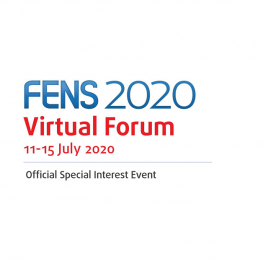Start
July 12, 2020 - 9:30 am
End
July 12, 2020 - 10:30 am
Organised by EJN.
The most important skill a scientist needs, after the research and technical skills needed to execute a study, is the ability to report their scientific endeavours in the written form. Indeed, there is no point in conducting research if one cannot articulate new scientific knowledge. The aim of this workshop, which will be presented by the editors of four international, society-owned neuroscience journals, to discuss what happens to a paper once the ‘submit’ button is pressed. We will discuss what editors consider when deciding whether to review a paper, what we expect from reviewers, what we expect in a good paper, how journals expect data to be represented and statistical analyses reported and issues around journal metrics. Each of the editors will be attending the FENS forum and will be available for discussion about current papers, prospective papers and special issues.
Chair: John Foxe, USA: Editor of European Journal of Neuroscience
- Juan Lerma, Spain: Editor of Neuroscience. “What happens to your paper once submitted to a journal”
- Jeff Dalley, UK: Editor of Brain and Neuroscience Advances. “The peer-review process and what we expect reviewers to do”
- Marina Picciotto, USA: Editor of the Journal of Neuroscience. “What we expect in a good paper”
- Guillaume Rousselet, UK: Section Editor European Journal of Neuroscience. “Representation of your data and statistical analyses”
- John Foxe, USA: Editor of European Journal of Neuroscience “The impact factor: a useful metric or the poison science?”
Additional aims are:
- to stress the importance of Society-owned journals,
- to show that we as editors are approachable and want to publish good science
- to show that we are scientists ourselves who have gone through the submission process many times and
- to dispel the idea of conflict between the author and Editors/reviewers


